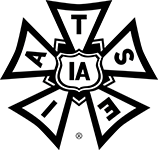
Working Outside of BC
Whether working in another part of Canada, the United States, or even farther afield, there are a number of things to be aware of.The Agreement You Are Working Under
You may be covered under a BC agreement or by an agreement from the jurisdiction that you will be working in. This decision is often, though not always, based on the location of the "home" production office or where the majority of production will take place. BC-based contracts include the Master Agreement, the Supplemental Master Agreement, or International Low Budget Agreement. Other jurisdictions may also have multiple agreements in place; be sure to confirm which contract you are covered by, and familiarize yourself with the contract language that affects you.
Who Administers the Agreement?
If no other arrangement has been made, the contract is administered by the signatory local of that agreement. For example, if you're covered by the Local 891 Master Agreement then we would administer the contract and would advocate on your behalf. If you're working under an agreement from another jurisdiction then the Local in that jurisdiction may represent you and administer the contract.
Your Obligations
As well as notifying the host local that you will be working in their jurisdiction, you must also abide by the rules and laws of that local. Call the Business Representative to inform him or her of your presence and to ask about hiring practices and bylaws. Find the Business Representative by searching the Local Union Directory on the IATSE International website, or by going to the host local's website.
Where Your Dues Go
Working dues are a percentage of your gross wages paid to IATSE Local 891on your behalf. Your dues may be paid to us or to the local in the jurisdiction in which you are working. Your dues are usually sent to the local that is signatory to the agreement under which you are covered. It is important to discuss with the production where your dues will be sent and to make arrangements with us and your host local to ensure that they are sent to the right place.
Fringe Rates
Fringe benefits are paid as a percentage of your wages and meal penalties to cover pension contributions, health benefits, holiday and vacation pay. If your benefits are being paid to the host local, the Business Representative in that jurisdiction will have the details of the fringe rates and allocation.
Health Benefits Coverage
If you have coverage under the Motion Picture Workers Health Benefits Plan and you maintain your hour bank through work hours or self-payment, you continue to be covered if you temporarily leave BC for employment. Your BC Medical Services Plan, dental and extended health coverage continue as usual for an absence of up to six months. Criteria for coverage during temporary absences varies based on the time you will be out of BC and location of your home residence. For more information contact MSP at 604-660-2421 (Vancouver), or 1-800- 663-7867 (rest of BC), or check out this link.
Be aware that your provincial health care coverage (MSP) may not pay for all the health care costs you could incur outside BC, and that the difference can be substantial. It is recommended that you obtain additional health insurance from a private insurer before you leave, whether you are going to another part of Canada or outside the country.
Your health benefits may be paid to your home local or to the local in whose jurisdiction you are working. The usual arrangement is that your benefits are submitted to the local that is signatory to the agreement you are covered by.
However, many IATSE Locals and DGC District Councils within Canada have signed Reciprocal Agreements allowing health benefits to flow back to a members' home local health plan. This allows you to benefit from all hours/benefits accumulated (regardless of where you work).
The following organizations have reciprocal agreements with IATSE Local 891.
IATSE Locals, 105, 118, 129, 168, 210, 212, 262, 295, 300, 411, 461, 514, 523, 580, 634, 667, 669, 709, 828, 849, 856, 863, 873, 891, 924.
DGC District Councils in BC, Ontario, Manitoba, and Quebec.
In order to have your benefits transferred you need to:
- Inform us that you are working in another jurisdiction and how long you expect to be there.
- Ask the accounting department of the host local or DGC office to make a notation on your time-sheets that you are a Local 891 member and wish to have monies and straight time equivalent hours transferred back to us.
- Send copies of your time-sheets to Local 891 once a month.
If you follow this procedure, the hours should be credited to your H&W hour bank within a month of the show ending. Of course, this depends on when the H&W monies and time-sheets are received by Local 891.
Our office may adjust your hours downwards if the health benefits dollars we receive are not above the minimum rate for work in Local 891.
The United States: There are currently no reciprocal agreements with locals in the US. You may be able to arrange for your employer to remit the contributions directly to this Plan under another arrangement, but we do not have a formal process.
Shortage Notices: If your hour bank was low before you went to work in another jurisdiction, you may have to continue paying your shortage notices until the hours from the away local or DGC office start coming in.
WCB Coverage
In order for an employee to be covered under the Workers Compensation Act, four conditions must be met. The Board must pay compensation if:
- A place of business of the employer is situated in the Province;
- The residence and usual place of employment of the worker are in the Province;
- The employment is such that the worker is required to work both in and out of the Province; and
- The employment of the worker out of the Province has immediately followed the worker's employment by the same employer within the Province and has lasted less than 6 months, but not otherwise.
Reference: Workers Compensation Act, Part 1, Division 2, Section 8(1). All four of these criteria must be met in order for a worker to be covered by WCB in case of injury (regardless of where the workplace injury occurs).
In order to ensure that you will be covered, ask your employer about coverage and point out that you must work in BC (even if it's only for a single day) in order to meet the criteria listed above.
WCB Coverage as an Employee or a Loan-Out Company
As an employee of the production company you should be covered by WCB (including being covered in case of an injury occurring outside BC if the four conditions listed above are met). If you are being paid as a loan-out company, however, you are considered an employee of that company and it is necessary for your loan-out company to pay for WCB coverage for you.
If you are injured on the job when you are being paid as a loan-out company you may be covered by the WCB premiums paid by the production company, but you also may not be covered and your injury claim could be refused by WCB. To be sure, register your loan-out company for WCB coverage.
Hours Worked Outside BC
WCB considers all earnings in the three or 12 months prior to injury when assessing an injury claim regardless of the where employment took place.To speak to our Occupational Safety and Health Representative about your WorkSafeBC claim, please contact us. If you are injured while working in another jurisdiction, it is advisable to also inform the host local to ensure that it is aware of any workplace incidents.
Membership and Sister Local Status with Other IATSE Locals
Each IATSE Local has its own requirements for membership and sister local status, and you will have to contact the appropriate local to find out the details. If you are an IATSE Local 891 member applying at another local, the IATSE Local 891 office may be able to help you with your application.
Paperwork
A valid passport is required for international travel so keep you passport current. Some countries have additional requirements that your passport must not expire within a specific period of your expected return date. Visit Passport Canada for more information.
Most countries have requirements for foreign workers to obtain visas in order to work within the country. As your employer, the production company will be instrumental in obtaining the appropriate documents for you. Be sure to ask what is required and provide production with the necessary personal information in a timely manner to ensure that there are no unnecessary delays or that you don't miss out on work opportunities.








